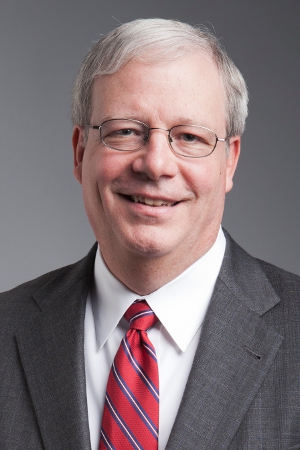Greg Johnston has served Birmingham, Ala.-based Baptist Health System since 1991 in various leadership positions.

Here, Mr. Johnston discusses what he has learned about leadership during his years in the healthcare industry and what Baptist is focused on in the midst of a time of fiscal uncertainty for hospitals and health systems.
Question: What is the most important lesson you've learned about healthcare leadership?
Greg Johnston: You cannot do it in a vacuum. It takes very close collaboration with the operators to ensure the entire organization is properly financially managed. The finance department can look up benchmarks and can look at rating agency ratios and all these external things. You've got to be able to make them real to the operators. You've got to be able to translate financial calculations into operational opportunities.
I came into Baptist with strictly a finance background, not a whole lot of experience in operations. I have had to learn to translate financial calculations into operational opportunities.
Q: It's a tough time for hospitals and health systems in the
GJ: I would say that what we're focused on is to ensure that we're living within our means. This requires that we do the best job we can in forecasting revenue. The revenue is declining because of government cuts and higher copayments from patients. How can we adjust our expenses to live within this revenue? I would say that's number one.
Number two, I would say it has never been more difficult to do that because the ability to forecast in this environment is extraordinarily difficult. Your lead time to be able to make changes to live within your means is much shorter than it was five to 10 years ago. It's literally August when you know what you're going to get paid in October for Medicare. Who knows what new ways they'll have come up with for payment cuts for this year? It is very hard to forecast that now compared to what it used to be. It really is incredible. CMS did the two-midnight rule change effective Oct. 1. That was a thing that we had no time to react to, but in our situation is a six-figure reduction in revenue. You don't have a lot of time to react to those kinds of things.
Q: Are there any projects or initiatives going on at Baptist Health right now that you're particularly excited about?
GJ: The collaboration we have with our medical staff has never been stronger. We have an organization called the Baptist Physician Alliance. We have close to 90 percent of our medical staff who have voluntarily joined. This is giving us the opportunity to work collaboratively together to look at population health management, to look at risk-based contracting and to look at operating efficiencies within our hospitals.
I'm very excited. It certainly feels like we're all in this together.
Q: There's a lot of uncertainty in the healthcare industry surrounding the Patient Protection and Affordable Care Act exchanges. How do you expect the exchange in
GJ: In the short run, we don't expect to see a whole lot of impact.
There may be an upside in the long-term if we really are able to get uninsured patients enrolled under the exchange. In the short run, we've got to do a better job of collecting what patients owe. I don't think we're going to have a significant change in our uninsured volume in fiscal year 2014. Maybe by the time we get into '15 and '16 the exchange will have taken off some, but it certainly has not taken off yet.
Q: What's your take on
GJ: We're very disappointed that the governor made the choice not to expand Medicaid. We have a large number of residents of Alabama that would be covered if we were to do the expansion. It would certainly help reduce the numbers of uninsured in the state. The healthcare industry is very disappointed that we're not receiving those available funds from the federal government.
More Articles on Health System CFOs:
Graham Regional Medical Center CFO Bonnie Blevins Announces Retirement
Baptist Health CFO Michael Lukaszewski to Retire
MetroHealth Selects Craig Richmond CFO

